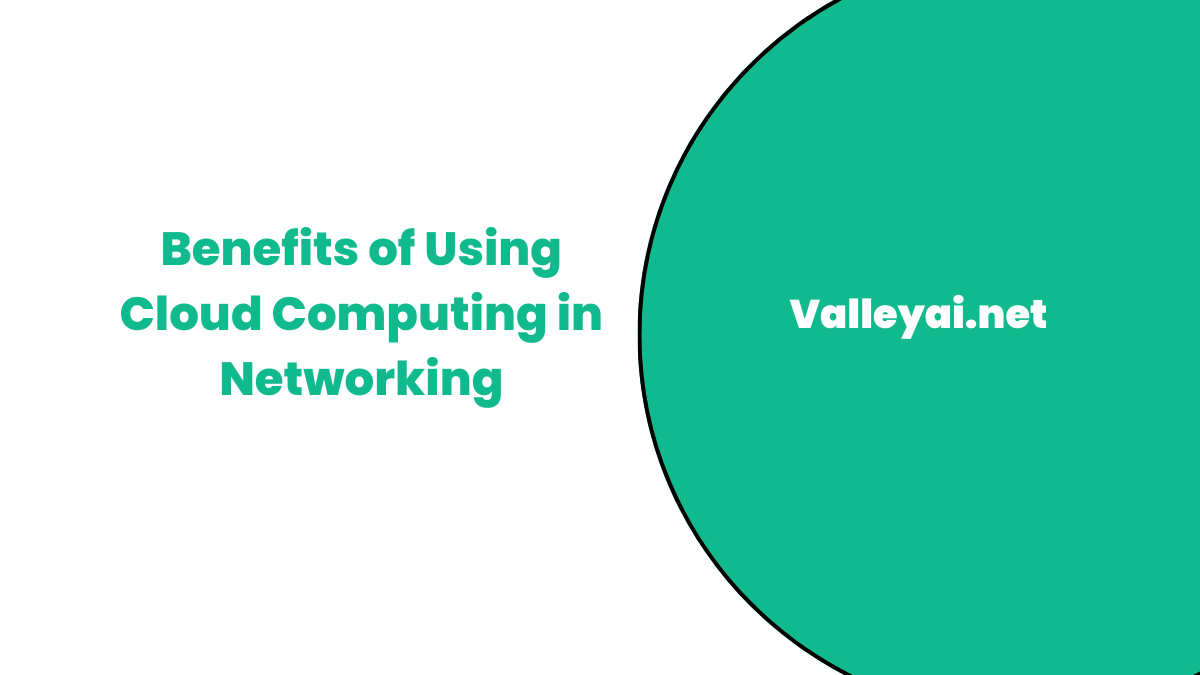For decades, network engineering was defined by physics and logistics. If you needed to expand capacity, you were constrained by lead times on hardware delivery, fiber installation, and the physical limits of your rack space.
The transition to cloud networking isn’t just about moving servers elsewhere; it is a fundamental shift from building infrastructure to consuming it. For network administrators and CIOs, the value proposition lies not in abstract buzzwords like scalability, but in the specific architectural and operational capabilities that legacy hardware simply cannot replicate.
Here is an analysis of the tangible benefits of cloud networking, grounded in the realities of modern NetOps. The real value of cloud networking operational agility over hardware constraints
1. From Provisioning Hardware to Consuming Global Backbones
The most immediate difference between on-premise networking and the cloud is the speed of deployment. In a traditional MPLS (Multiprotocol Label Switching) environment, provisioning a secure, private link between a London office and a New York data center involves carriers, contracts, and a lead time often measured in months.
In a cloud environment, peering two Virtual Private Clouds (VPCs) across different geographic regions takes approximately 15 minutes of configuration.
Accessing the Hyperscaler Backbone
A frequently overlooked benefit is access to the cloud provider’s private fiber network. When you utilize AWS, Azure, or Google Cloud networking, your traffic often rides their private global backbone rather than the congested public internet.
- Traditional: Traffic hops across multiple public ISPs, subject to unpredictable latency and packet loss (the hot potato routing method).
- Cloud: Traffic enters the nearest Point of Presence (PoP) and stays on the provider’s dedicated, optimized fiber until it reaches the destination application.
This allows organizations to leverage a global, carrier-grade network without the capital expenditure of building one.
2. Killing the Hairpin: Architectural Agility
Legacy network architectures were designed for a world where applications lived in the headquarters’ data center. Remote offices connected via hub-and-spoke topologies, backhauling all traffic including internet browsing through the HQ firewall.
In the era of SaaS (Software as a Service) and video conferencing, this “hairpin” effect is a performance killer. It adds unnecessary latency and saturates the expensive MPLS links with traffic destined for the public internet (like Zoom or Office 365).
Cloud networking facilitates a Direct-to-Cloud or Edge Networking model. By integrating SD-WAN (Software-Defined Wide Area Network) with cloud gateways, traffic is routed intelligently:
- Trusted SaaS traffic breaks out locally to the internet.
- Internal application traffic routes securely to the cloud VPC.
- Suspicious traffic is diverted to a cloud-based security stack (SSE) for inspection.
The benefit here isn’t just speed; it is the ability to change traffic patterns instantly via policy updates rather than re-cabling physical appliances.
3. NetOps Becomes Code (IaC)
Perhaps the most profound shift for the engineer is the move from the Command Line Interface (CLI) to Infrastructure as Code (IaC).
Managing physical switches often involves SSH-ing into individual boxes to paste configuration commands. This manual process is prone to configuration drift, where undocumented changes accumulate over time, making the network fragile and difficult to troubleshoot.
Cloud networking treats the network topology as software. Using tools like Terraform or CloudFormation, you define your subnets, route tables, and gateways in code.
The Operational Gain:
- Version Control: You can track every change to the network in Git.
- Immutability: If a network segment is compromised or misconfigured, you don’t spend hours troubleshooting. You tear it down and redeploy the known-good state from your code repository in minutes.
- Replicability: You can spin up an exact replica of your production network in a staging environment for testing, ensuring that a firewall change won’t break production.
4. Security: Identity Over Geography
In a physical network, security is largely tied to the port and the wire. If a server is plugged into the HR VLAN port, it has HR access. Segmentation relies on rigid IP ranges and VLAN tags.
Cloud networking decouples security from physical location. Security Groups and Network Access Control Lists (NACLs) wrap around the logical instance (the workload), regardless of where it resides.
This structure natively supports Zero Trust principles. Instead of trusting an IP address because it falls within a certain subnet range, cloud networking allows you to define access based on identity tags (e.g., App=Finance, Env=Prod). If the Finance application autoscales from two servers to fifty, the security policy automatically applies to the new instances without manual firewall ticket intervention.
5. The Elasticity Reality Check: Performance vs. Cost
Traditional capacity planning is a gamble. You have to buy load balancers (like F5 or Citrix ADC) sized for your peak traffic perhaps Black Friday or a seasonal launch. For the rest of the year, that expensive hardware sits 90% idle.
Cloud networking introduces native Elastic Load Balancing (ELB/ALB). These are software-defined appliances that expand and contract automatically based on throughput or connection count. You pay for the active connections, not the idle capacity.
The Cost Warning (Egress Fees)
While the operational benefits are clear, the financial benefit is nuanced. Cloud networking is rarely “cheaper” in raw dollar terms if managed poorly. The primary cost trap is Data Egress fees charged for data leaving the cloud provider’s network.
The benefit, therefore, is not automatic cost reduction, but cost alignment. In a hardware model, you pay for capacity upfront (CapEx) regardless of usage. In a cloud model (OpEx), costs scale with your business activity. If traffic spikes, costs rise, but ideally, so does revenue. If traffic drops, costs fall. This alignment reduces financial risk, even if the monthly bill requires careful monitoring.
Conclusion
When you store files on your computer or other personal devices, they are typically all stored locally. I hope you understand the Benefits of Using Cloud Computing in Networking.
This means that if you’re at work, and your laptop crashes, those files are likely gone for good (unless there is some sort of backup system). With cloud computing, many companies offer remote storage where files are stored online.
Cloud computing is fast becoming one of today’s most popular trends, not only because it’s incredibly powerful and flexible, but also because it comes with a variety of cost-saving benefits.
If you own or manage a company that utilizes cloud networking services, cloud computing can increase your overall efficiency and thus profitability by improving how you manage your IT systems.
Related: cloud computing jobs
Recommended Next Steps For Learning
- Deep Dive: Explore Managing Cloud Egress Costs to understand how to design topologies that minimize data transfer fees.
- Skill Building: Read Introduction to Terraform for Network Engineers to start the transition from CLI to IaC.
- Comparison: Review SD-WAN vs. MPLS for a detailed look at modernizing branch connectivity.
FAQ: Top Five Benefits of Using Cloud Computing in Networking
What is the difference between the functions of cloud computing and virtualization?
The difference between cloud computing and virtualization is that the latter only allows for the provisioning of CPU, memory, and storage as a service, while cloud computing can provide a much larger range of services such as software or web hosting.
How does cloud computing work?
Cloud computing uses a computer network to access data stored on remote servers. The data can be accessed from anywhere in the world through cloud networks, and the computing power can be pooled to make it faster and more powerful.
What are the drawbacks of using cloud computing?
One of the biggest disadvantages of using cloud computing is that it can be difficult to keep up with the latest changes.
Cloud computing can also be difficult to manage, as the applications that are used can be different from one cloud service provider to another. Additionally, some cloud computing providers are not as reliable as they seem and can be prone to outages.
Admin
My name is Kaleem and i am a computer science graduate with 5+ years of experience in AI tools, tech, and web innovation. I founded ValleyAI.net to simplify AI, internet, and computer topics also focus on building useful utility tools. My clear, hands-on content is trusted by 5K+ monthly readers worldwide.

